In the world of camping, embracing eco-friendly practices is not just a trend but a necessity. For scouts, who are often at the forefront of environmental stewardship, using sustainable camping gear is a natural extension of their values. This article delves into the world of eco-friendly camping gear for scouts, exploring the benefits, best practices, and ethical considerations that come with making sustainable choices in the great outdoors.
From sustainable materials and energy-efficient designs to waste reduction and water conservation, there are countless ways to minimize the environmental impact of camping. By choosing eco-friendly gear, scouts can not only enjoy their adventures but also contribute to the preservation of the natural world they cherish.
Sustainable Materials
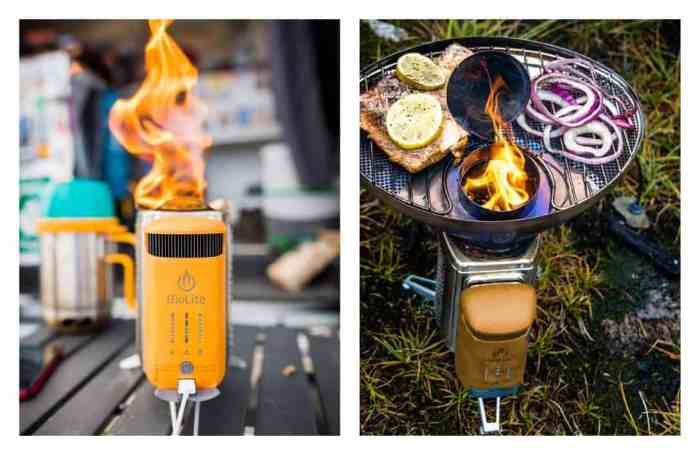
The camping industry is taking steps towards sustainability by using eco-friendly materials in its gear. These materials help reduce the environmental impact of camping and make it more sustainable for future generations.
Sustainable materials used in camping gear include recycled fabrics, organic cotton, bamboo, and cork. These materials are biodegradable, renewable, and have a lower environmental impact than traditional materials.
Benefits of Using Sustainable Materials
- Reduced environmental impact
- Increased durability
- Improved performance
Energy Efficiency
In the pursuit of eco-friendly camping, energy efficiency plays a pivotal role in minimizing environmental impact. By adopting energy-efficient camping gear, scouts can reduce their reliance on non-renewable resources, conserve energy, and promote sustainable practices.
The advantages of using energy-efficient camping gear are numerous. It helps reduce greenhouse gas emissions by consuming less energy, conserves natural resources by extending the lifespan of batteries and fuel, and saves money in the long run. Additionally, energy-efficient gear often incorporates innovative technologies that enhance camping experiences, such as improved lighting efficiency and extended battery life.
LED Lighting
Traditional incandescent bulbs are highly inefficient, wasting a significant amount of energy as heat. LED (light-emitting diode) bulbs, on the other hand, are highly energy-efficient, consuming up to 90% less energy than incandescent bulbs while providing comparable or even brighter illumination.
LED camping lanterns and headlamps offer extended battery life, allowing scouts to enjoy reliable lighting for longer periods.
Solar Chargers
Solar chargers harness the power of the sun to recharge electronic devices, eliminating the need for disposable batteries. By utilizing solar energy, scouts can power their phones, GPS devices, and other essential electronics while minimizing their environmental footprint. Solar chargers come in various sizes and capacities, allowing scouts to choose the best option for their specific needs.
Energy-Efficient Stoves, Eco-friendly camping gear for scouts
Traditional camp stoves can be inefficient, wasting fuel and releasing harmful emissions. Energy-efficient stoves, such as canister stoves or wood-burning stoves, are designed to maximize fuel efficiency and minimize emissions. Canister stoves utilize a precise fuel-to-air ratio, ensuring complete combustion and reducing fuel consumption.
Wood-burning stoves, when used responsibly, can provide a sustainable and efficient cooking method by utilizing renewable resources.
Waste Reduction

Camping can be a fun and rewarding experience, but it’s important to be mindful of your impact on the environment. One way to do this is to reduce waste.Camping waste can have a significant environmental impact. It can pollute waterways, harm wildlife, and contribute to climate change.
Reducing waste is a simple way to help protect the environment and make your camping trip more enjoyable.There are several ways to reduce waste while camping. One is to pack light and only bring what you need. This will help you avoid generating unnecessary waste.
Another way to reduce waste is to use reusable items, such as water bottles, utensils, and plates. This will help you avoid creating single-use waste.You can also reduce waste by properly disposing of your trash. Be sure to pack out everything you pack in, and dispose of trash in designated receptacles.By
following these tips, you can help reduce waste while camping and protect the environment.
Packing and Using Camping Gear to Minimize Waste
There are several ways to pack and use camping gear to minimize waste. One way is to choose gear that is durable and can be used multiple times. This will help you avoid generating unnecessary waste. Another way to reduce waste is to use gear that is made from recycled materials.
This will help you support sustainable businesses and reduce your environmental impact.You can also reduce waste by packing your gear carefully. Be sure to use reusable containers and avoid using single-use items. This will help you avoid creating unnecessary waste.By
following these tips, you can help reduce waste while camping and protect the environment.
Water Conservation
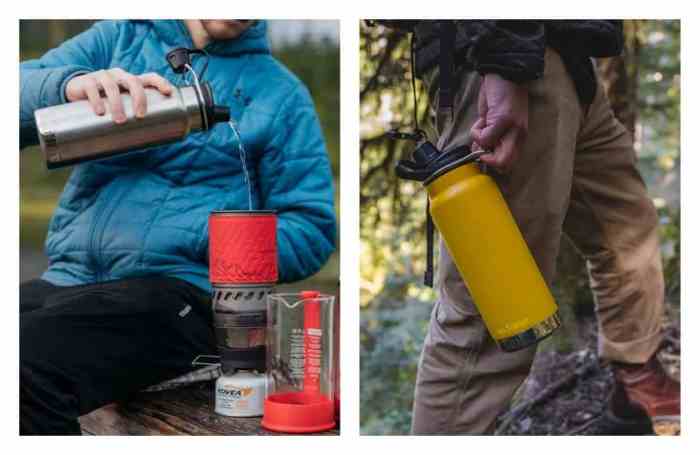
Water is essential for life, and it is important to conserve it whenever possible, especially when camping. There are many ways to conserve water while camping, and using the right gear can make a big difference.
Water Conservation Methods
There are many ways to conserve water while camping. Some of the most effective methods include:
- Taking shorter showers
- Turning off the water when brushing your teeth or shaving
- Using a low-flow showerhead
- Collecting rainwater for drinking, cooking, and washing
- Using a portable toilet
- Packing out all of your trash
Water Conservation Gear
There are a number of camping gear items that can help you conserve water. Some of the most popular items include:
- Water bottles with filters
- Water purification tablets
- Portable showers
- Camp stoves that use less fuel
- Tents with rain flys
By using water conservation methods and gear, you can help to protect this precious resource.
Ethical Considerations
The production of camping gear has ethical implications that require consideration. Supporting sustainable and ethical brands is crucial to minimize the environmental and social impact of camping activities.
Ethical considerations when choosing camping gear include:
Labor Practices
- Ensuring fair wages and safe working conditions for workers involved in the production of camping gear.
- Supporting brands that prioritize the well-being of their employees and adhere to labor laws.
Material Sourcing
- Choosing gear made from sustainable and recycled materials to reduce environmental impact.
- Supporting brands that prioritize responsible sourcing of raw materials and minimize waste.
Environmental Impact
- Selecting gear that is designed to minimize environmental impact, such as energy-efficient lighting and biodegradable materials.
- Supporting brands that actively work to reduce their carbon footprint and protect ecosystems.
Certifications and Standards
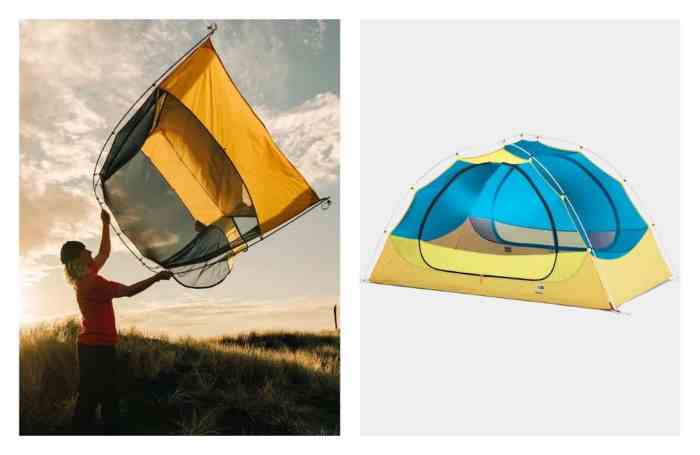
Certifications and standards play a vital role in ensuring the eco-friendliness of camping gear. They provide independent verification that products meet specific environmental criteria, making it easier for consumers to make informed choices.
Several organizations offer certifications and standards for eco-friendly camping gear. Some of the most prominent include:
Global Organic Textile Standard (GOTS)
GOTS certifies textiles made from organic fibers, ensuring they are produced in an environmentally and socially responsible manner. Camping gear made from GOTS-certified fabrics is free from harmful chemicals and promotes sustainable farming practices.
Bluesign Approved
Bluesign Approved is a comprehensive certification that covers the entire production process of camping gear. It ensures that materials are sourced from sustainable sources, that manufacturing processes minimize environmental impact, and that products are safe for both humans and the environment.
OEKO-TEX Standard 100
OEKO-TEX Standard 100 certifies textiles that are free from harmful substances. Camping gear made from OEKO-TEX-certified fabrics is safe for human contact and does not contain any chemicals that could harm the environment.
Examples of Camping Gear with Certifications
- REI Co-op Passage 2 Tent: GOTS-certified organic cotton tent
- Patagonia Black Hole Duffel Bag: Bluesign Approved duffel bag
- Therm-a-Rest NeoAir XLite Sleeping Pad: OEKO-TEX Standard 100-certified sleeping pad
Gear Recommendations
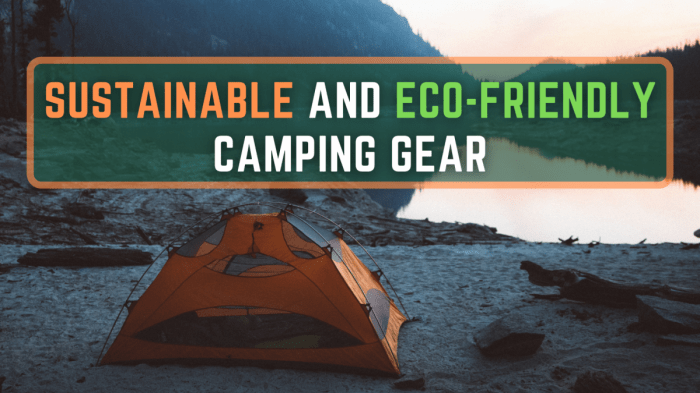
Choosing eco-friendly camping gear helps reduce environmental impact while enjoying the outdoors. Consider factors like sustainable materials, energy efficiency, waste reduction, water conservation, ethical considerations, and certifications when selecting gear.
Here’s a comparison table showcasing eco-friendly camping gear options:
Product Comparison Table
| Product Name | Materials | Features | Price |
|---|---|---|---|
| Therm-a-Rest NeoAir XLite Sleeping Pad | Recycled polyester, polyurethane | Lightweight, compact, high insulation value | $199.95 |
| Big Agnes Copper Spur HV UL Tent | Recycled nylon, aluminum | Ultralight, waterproof, breathable | $499.95 |
| MSR PocketRocket 2 Stove System | Stainless steel, aluminum | Compact, fuel-efficient, piezo igniter | $79.95 |
| Hydro Flask Wide Mouth Water Bottle | Recycled stainless steel | Durable, double-walled insulation, leak-proof | $34.95 |
| BioLite CampStove 2+ | Recycled aluminum, ceramic | Wood-burning stove, charges devices | $129.95 |
Best Practices: Eco-friendly Camping Gear For Scouts
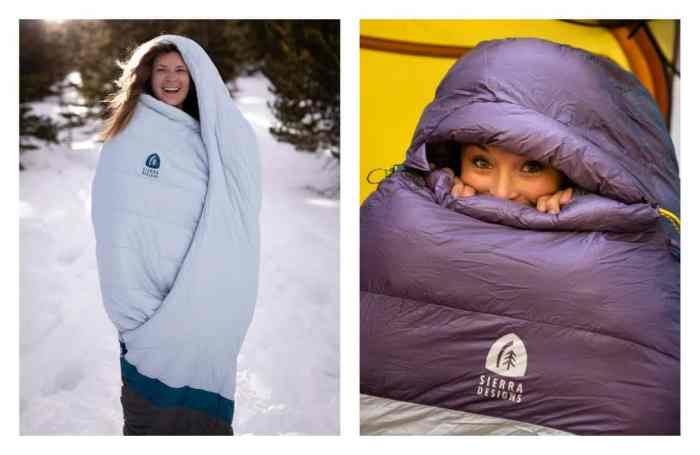
To maximize the benefits of using eco-friendly camping gear, it’s crucial to adopt responsible practices. Here’s a guide to help you use your gear sustainably while enjoying the outdoors:
By following these best practices, you can minimize your environmental impact while camping and contribute to preserving the natural beauty of the wilderness for future generations.
Choosing Gear
- Consider the durability of your gear:Durable gear lasts longer, reducing the need for frequent replacements and waste generation.
- Opt for gear made from recycled or sustainable materials:This supports the circular economy and reduces the demand for virgin resources.
- Choose gear that’s designed for multiple uses:Versatile gear minimizes the need for multiple items, reducing waste and clutter.
Using Gear
- Clean and maintain your gear regularly:Proper maintenance extends the lifespan of your gear and reduces the need for replacements.
- Repair gear when possible:Instead of discarding damaged gear, attempt repairs to extend its usefulness.
- Use gear responsibly:Avoid overpacking or using gear beyond its intended purpose to prevent damage and extend its life.
Packing and Storage
- Pack light and efficiently:Minimize waste by only bringing essential items and packing them compactly.
- Use reusable containers:Replace single-use plastic bags and containers with reusable alternatives.
- Store gear properly:Keep gear clean, dry, and protected from pests to extend its life.
Disposal
- Dispose of gear responsibly:Recycle or donate used gear instead of discarding it in landfills.
- Consider biodegradable options:For gear that cannot be recycled or reused, opt for biodegradable materials.
- Support gear rental programs:Renting gear instead of purchasing new items reduces waste and promotes sustainability.
Epilogue

As scouts embrace eco-friendly camping practices, they become not only responsible campers but also ambassadors for sustainability. By demonstrating the importance of environmental stewardship through their gear choices, they inspire others to follow suit, creating a ripple effect that extends far beyond the campsite.
Eco-friendly camping gear for scouts is not just a trend; it’s a testament to their commitment to preserving the wilderness they explore and a beacon of hope for a more sustainable future.
FAQ Insights
What are the benefits of using eco-friendly camping gear?
Eco-friendly camping gear is made from sustainable materials, reducing the environmental impact of production and disposal. It also promotes energy efficiency, waste reduction, and water conservation, helping scouts minimize their footprint while camping.
How can scouts reduce waste while camping?
Scouts can reduce waste by packing reusable items, avoiding single-use plastics, and properly disposing of trash. They can also choose camping gear that is designed to minimize waste, such as reusable water bottles and biodegradable soap.
What are some ethical considerations when choosing camping gear?
Scouts should consider the ethical implications of their gear choices, such as the environmental impact of production, labor practices, and animal welfare. They can support sustainable and ethical brands that prioritize environmental stewardship and fair trade practices.




